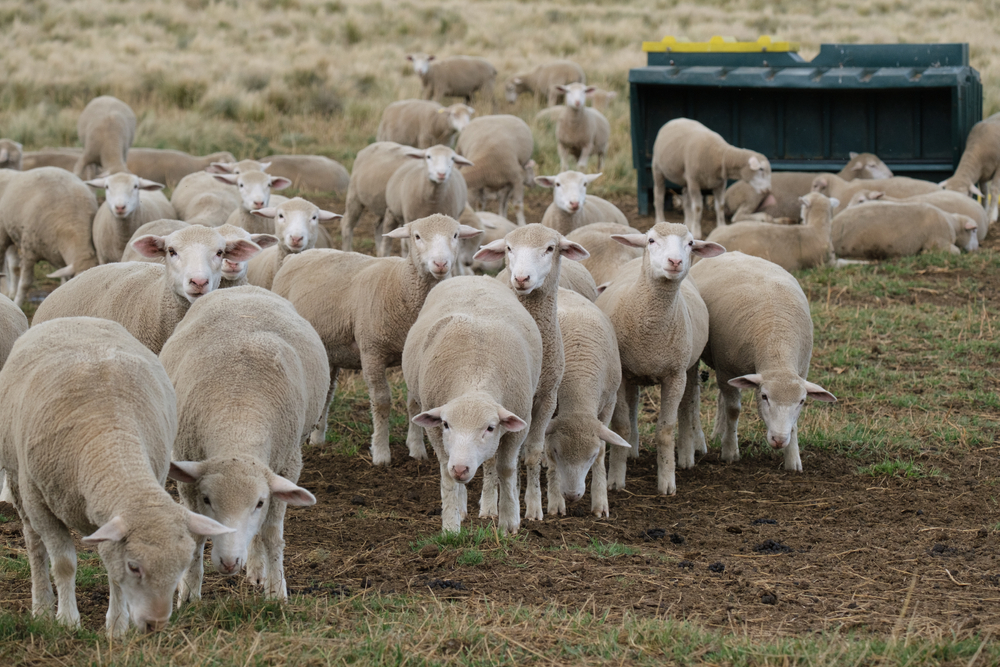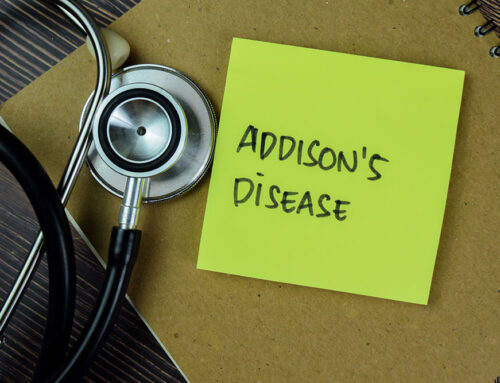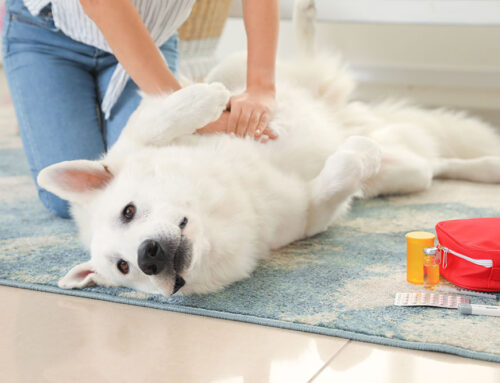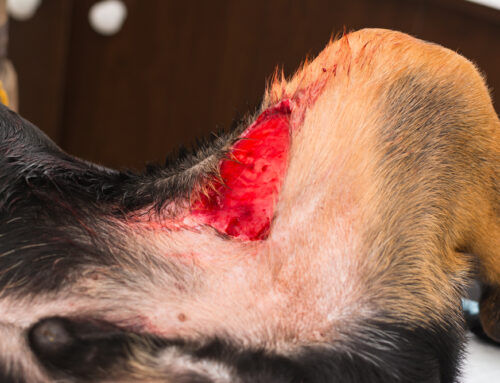Health maintenance is crucial for the success of any herd of small ruminants, such as sheep and goats. Whether you are a seasoned farmer or new to small ruminant care, understanding the fundamentals of herd health management is essential. Our Alpine Animal Hospital team explains key strategies to ensure your flock remains healthy, productive, and thriving.
Comprehensive health plan
A well-structured small ruminant herd health plan is the foundation of a healthy flock. This plan should include:
- Vaccinations — Vaccinations prevent common diseases that can quickly spread through your flock. Key vaccines for small ruminants include those for clostridial diseases (e.g., tetanus and enterotoxemia) and caseous lymphadenitis (CL).
- Routine health checks — Regular health assessments help identify early illness or injury signs. Inspect your animals regularly for lameness, weight loss, and behavioral changes.
- Parasite control — Parasites are a significant problem in small ruminants, leading to poor growth, reduced productivity, and in severe cases, death. Therefore, an effective parasite control program is essential, and should include:
- Fecal egg counts (FECs) — Regular FECs help monitor the parasite burden in your flock and guide treatment decisions. This practice prevents the overuse of anthelmintics (i.e., dewormers) and reduces the risk of resistance.
- Pasture management — Rotational grazing and maintaining clean pastures can help reduce your flock’s parasite load. Avoid overgrazing and consider resting pastures to break the parasite life cycle.
- Targeted deworming — Rather than deworming the entire flock routinely, target your approach based on the FEC results and an individual animal’s condition. This method is more effective and reduces the risk of resistance.
Nutritional management
Proper nutrition is crucial for the growth, reproduction, and overall small ruminant herd health. Your flock’s nutritional needs will vary depending on their age, reproductive status, and workload. Considerations include:
- Balanced diet — Your flock’s diet must meet their specific nutritional requirements. This includes access to high-quality forage, such as pasture or hay, and supplementation with grains or concentrates when necessary.
- Mineral supplements — Ensure that your flock receives appropriate mineral supplements. Deficiencies can lead to serious health problems.
- Water access — Fresh, clean water should always be available. Dehydration can quickly become life-threatening, especially in hot weather or when milk production is high.
Reproductive health
Maintaining your flock’s reproductive health is essential, and proper management of breeding, pregnancy, and lambing/kidding is key to ensuring small ruminant herd health. Factors include:
- Breeding management — Monitor the body condition of breeding animals and ensure they are in optimal health before mating. Consider your breeding stock’s genetic health to avoid hereditary issues.
- Pregnancy care — Pregnant ewes and does require additional nutrition and care. Monitor them closely for signs of nutritional deficiencies or pregnancy-related diseases, such as pregnancy toxemia.
- Lambing/kidding support — Prepare a clean, safe environment for lambing/kidding. Be ready to assist with difficult births and ensure that newborns receive colostrum promptly to boost their immunity.
Disease prevention and management

Preventing and managing diseases in your flock is crucial for small ruminant herd health. Recommendations include:
- Quarantining new animals — Quarantine new additions to your flock and monitor them for illness signs for at least two weeks before introducing them to the rest of your herd.
- Controlling wildlife and pests — Protect your flock from wild animals and pests, since they can carry diseases. In addition, secure feed storage areas to prevent contamination by rodents or birds.
- Limiting visitors — Restrict access to your farm to prevent visitors from introducing diseases. Provide disinfectant foot baths at entry points and ensure equipment is clean and disinfected.
- Isolating sick animals — Isolate sick animals immediately to prevent disease spread throughout the flock. Then, monitor your other animals closely for illness signs.
- Seeking prompt veterinary care — Establish a good relationship with our Alpine Animal Hospital team and seek our advice as soon as you notice illness signs. Early diagnosis and treatment are essential in managing outbreaks and minimizing losses.
Maintaining small ruminant herd health requires a proactive and comprehensive approach. By implementing these key strategies, you can keep your flock healthy and productive. Contact our Alpine Animal Hospital team if you have questions about your small ruminant herd health plan.







Leave A Comment